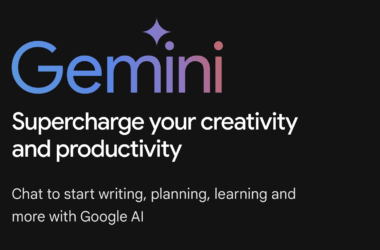SoftBank Robotics Corp last year rolled out Pepper – the world’s first personal robot that reads emotion. Since sales began in June 2015, the company had consistently sold out 1,000 units monthly since it unveiled the robot. In addition to being able to read emotions, Pepper also has emotions modeled on the human release of hormones in response to stimuli absorbed by the five senses which in turn generate emotions.
“Pepper has capabilities to generate emotions autonomously by processing information from his cameras, touch sensors, accelerometer and other sensors within his “endocrine-type multi-layer neural network,” SoftBank said in a statement. “With this emotion function, Pepper’s emotions are influenced by people’s facial expressions and words, as well as his surroundings, which in turn affects Pepper’s words and actions. For example, Pepper is at ease when he is around people he knows, happy when he is praised, and gets scared when the lights go down.”
It has been adapted to serve as an Inflight Service Bot – one that doesn’t hate picking up barf bags, can circulate in a plane even when there’s turbulence, and can speak to passengers in their own language. Furthermore, it can check in passengers at the gate, scan their tickets, and then circulate in a plane or wait at the end of a flight to tell passengers — in their own language — which gate they need to go to for a connecting flight.
Revealing the development process, the software engineers said they built it using the Pepper companion robot, IBM Watson’s artificial intelligence systems for natural language, and Panasonic’s in-flight data and displays, along with Here Maps indoor navigational data.
In medicine, with the aid of Watson capabilities, image recognition and thermal imaging, Pepper, can help out in an emergency situation. It has been programmed to stratify the risk and make sure the person who needs the care most gets the attention they need. Essentially in its current form, Dr. Pepper would simply help prioritize patients in line for human medical personnel.
Pepper has also been adapted to create a futuristic food ordering experience as PeppAR Waiter that uses the SoftBank robot Pepper and augmented reality service — Holo Yummy — in which Pepper plays waiter and takes a customer’s order whilst holding a tablet with the menu. Using augmented reality, the tablet also previews food with a hologram that a customer can see via a companion app on phone or tablet. Food ordered and previewed successfully, Pepper then goes off and fetch the order once it’s done.
The female developer said the technology could have a place in high-end restaurants or hotels, where customers want to know what they are getting before it comes and might appreciate the robotic service.
Elsewhere, it’s been announced that Pepper will start taking orders and payments in some Pizza Hut Asia restaurants by the end of the year. The service will be powered by MasterPass, the global digital payment service from MasterCard that connects consumers with merchants, enabling them to make fast, simple, and secure digital payments across channels and devices.
Without any doubt, a whole new set of innovations are being developed and demoed across the world based on cloud, data, artificial intelligence, augmented reality and cognitive thinking. Not all of them require the use of robots – one of such Phoney.club that gets users out of uncomfortable situations and discussions.
Hidden beneath the surface of what appeared like a text conversation are two key buttons. The first can trigger Watson to listen for the word “interesting” and when it hears that word, it call the user via integration with Twilio, a cloud-based communications platform for building voice and messaging applications on an API built for global scale.
If a user presses the second trigger, which says “Fine, fine. Call me and we’ll figure out how to take this deal to the next level. I’m sure it’s in everyone’s best interest,” Phoney.club will call the line in the next 10 seconds or so.
The fight for the next ‘Big Thing’
The fact that more of the innovations unveiled at last weekend’s TechCrunch Disrupt Hackathon are cognition-driven and enabled suggest that cognition is the next big thing as tech innovations are getting more personal, adaptive in real-time, responsive, reasonable and more useful. It was therefore not surprising that tech giants, especially IBM and Google, are competing to dominate the cognitive thinking space although via different approaches.
While IBM has targeted specific verticals, such as health care and has made the technology available for developers to use as an engine to power their own applications, Google, for its part, has open sourced its technology, but mainly used it to improve its own products.
The competition unofficially started February 10th, 1996 when IBM’s supercomputer, Deep Blue first beat world chess champion Garry Kasparov in a head-to-head match, something many thought a computer would never do. Fifteen years later, IBM’s Watson beat human champions on the game show Jeopardy!, thus ushering in the new era of cognitive computing.
Recently, Google made its own headlines. In March 2016, the company’s Alpha Go system defeated world champion Lee Sedol in the massively complex game of Go, a feat eerily similar, although far more impressive, to Deep Blue’s win 20 years earlier.
But while Google strives to find its footing in the cognitive thinking space, 105-year old IBM, even though it used to be known majorly for its typewriters and hardware, had swiftly pivoted into the digital space and made itself, thanks to its cloud platform spearheaded by Watson, to be the strongest force in the market as attested to by the wide array of products developed by developers using tools available within the IBM Cloud platform.

It was therefore not a surprising move that the company decided to focus on cognitive thinking at its Business Connect event held last week in Lagos. Speaking to TechCity, Dipo Faulkner, newly appointed Country General Manager, IBM Nigeria, affirmed that the company’s current focus is to encourage adoption of cognitive thinking into decision-making processes.
“We work for almost all industries even though we have our focus industries. The whole essence of our cognitive solutions and cloud business is to introduce cognitive thinking in decision-making across all businesses and also providing platforms because it’s at the receiving point and is the next frontier in technology and innovation,” he told TechCity.
To encourage its service users in West Africa to introduce cognition into their operations, IBM’s reps at the IBM Business Connect 2016 revealed data that confirmed a global paradigm shift towards cloud and cognitive thinking.

According to Maged Wassim, Vice President of the IBM Cloud Business Unit across the Middle East and Africa, investment in data and cognitive has doubled. He added that although only 16.2% of workloads are currently running in the public cloud, it is expected to rise to 41.3% within 5 years.
IBM also predicted that within two years, more than 50% of enterprises’ IT infrastructure and software spending will be cloud-based spending; while within the same period, 50% of the applications running in public cloud environments will be considered mission-critical by the organizations that use them. This development is expected to increase the value of the SaaS market from $9.7 million currently to $36.5 million in 2020.
Based on these indices, IBM encouraged businesses to start the process by embracing cloud.
“Use cloud for cost and speed; use savings to experiment with innovation; build cognitive solutions for your clients,” Wassim advised.
Speaking on the cognitive era, IBM’s Karthik Venkataraman noted that cognitive thinking creates previously unimagined new opportunities to outthink challenges, competitors and limits. He linked this to the success stories of Uber, airbnb, Alibaba and Facebook – the biggest companies that don’t own what they offer on their platforms.
Even though he concluded by stressing that getting disrupted is the highest cost of saying no to cognitive business, the potential capability of cognitive solutions development to help solve many problems that are militating against progress in various aspects of Nigerian economy and affecting citizens on a daily basis brought the conversation on the localization of cognitive innovations to the sidelines.
“We could build something to tackle corruption, directly engage with the government, improve the education sector, tackle media piracy, and enhance security.”
According to a young developer, cognition provides a more realistic tool to solving critical problems in Nigeria. He mentioned the critical traffic challenge in Lagos, expensive bags of rice and irregular prices of fuel as issues that could be solved with real-time solutions.
“We could build something to tackle corruption, directly engage with the government, improve the education sector, tackle media piracy, and enhance security. And that’s just for the average man on the street alone. Businesses can leverage on the innovation to track and respond to what customers are saying about them and improve their services,” he said.
 He however noted that the biggest hurdle to scale to fully unleash the power of digital intelligence in Nigeria is to encourage companies to move to the cloud and make their data more accessible.
He however noted that the biggest hurdle to scale to fully unleash the power of digital intelligence in Nigeria is to encourage companies to move to the cloud and make their data more accessible.
 “We need as many data as possible to be accessible. Even though we can’t exhaust the currently available data, the more local data we have access to, the better for us. There is also the need for a paradigm shift in product development by our local developers. Many of them don’t know about IBM Watson while only few know how to use it. With products on the IBM Cloud, it has become much easier to develop world class solutions within few days. Many of our guys don’t know this which is why they spend months writing codes they could have easily gotten,” he said.
“We need as many data as possible to be accessible. Even though we can’t exhaust the currently available data, the more local data we have access to, the better for us. There is also the need for a paradigm shift in product development by our local developers. Many of them don’t know about IBM Watson while only few know how to use it. With products on the IBM Cloud, it has become much easier to develop world class solutions within few days. Many of our guys don’t know this which is why they spend months writing codes they could have easily gotten,” he said.
“It is no longer about launching an app; it’s now about solving major problems that were once thought to hopeless. I know we can do it and with the right support, I’m very sure we will be ready in no time because we are very creative when we have the right tools,” he concluded.
Watch Highlights From IBM Business Connect 2016
As an Amazon Associate, TechCity may earn a small commission if you shop these products.
















